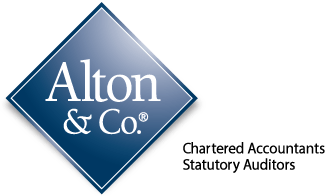The start of the 2024/25 tax year brings new considerations for UK businesses, from adjusted allowances to compliance updates. These changes mean new opportunities and, for some, additional administrative requirements. To help businesses stay compliant, we outline key changes and practical steps to ensure you’re fully prepared.
1. Understanding the corporation tax rate
The 2024/25 corporation tax remains 25% for companies with annual profits over £250,000. Small businesses with profits at £50,000 or below will continue to enjoy a lower rate of 19%. Companies with profits between £50,000 and £250,000 will be taxed tapered, so the effective rate increases gradually between these two thresholds.
For businesses approaching the higher threshold, it’s worth planning carefully. Reviewing expenses and potential investments before the end of the tax year can sometimes help maintain lower effective tax rates. Consulting with your accountant about optimal profit thresholds can ensure efficient tax planning and maximise reinvestment opportunities.
2. Updates on capital allowances
The government has introduced a “full expensing” policy for qualifying plant and machinery investments, which allows companies to write off 100% of investment costs in the year of purchase. Full expensing can apply to assets such as factory equipment, computers, and vehicles (excluding cars), incentivising businesses to reinvest and grow. This scheme is planned to run until March 2026, allowing businesses to benefit from immediate tax relief on capital investments.
Additionally, the Annual Investment Allowance (AIA) offers a similar incentive, with a spending cap of £1 million per year. These allowances mean companies can claim 100% tax relief on qualifying investments up to £1 million, providing flexibility for firms planning multiple smaller purchases rather than a single large expenditure.
3. Implications of R&D tax relief changes
In the 2024/25 tax year, research and development (R&D) tax relief has seen adjustments to support growth across the tech and innovation sectors. Small and medium-sized enterprises (SMEs) now benefit from an enhanced R&D tax credit rate of 10% (up from 7%), enabling companies to regain a larger percentage of their R&D expenditure. This can represent a substantial cash injection for loss-making SMEs, fostering innovation and helping them invest further in research projects.
It’s critical for companies to track R&D expenses carefully and ensure that all claims comply with HMRC’s stringent criteria. Work with your accountant to identify eligible costs and ensure compliance, as HMRC has recently ramped up scrutiny on R&D claims to prevent misuse.
4. Changes in National Insurance contributions (NICs)
For the 2024/25 tax year, Class 1 National Insurance thresholds have been slightly adjusted. Employers will start paying NICs at earnings above £175 per week, with employees contributing from £242 per week. With National Insurance rates set at 13.25% for employees and 15.05% for employers, these contributions remain a significant part of business payroll expenses.
Strategic workforce planning can help reduce National Insurance obligations for businesses managing large teams. Exploring methods such as flexible working hours, part-time positions, and salary sacrifice schemes can lead to potential savings. Your accountant can provide guidance on structuring payroll effectively to reduce NIC burdens while remaining compliant with all HMRC requirements.
5. Adjustments to personal allowances and dividend tax rates
The personal allowance remains at £12,570, while the higher-rate threshold has slightly lowered to £50,270. For high-earning business owners, it’s essential to monitor income distributions, as exceeding this threshold could result in higher personal tax liabilities. Dividend tax rates are 8.75% for basic-rate taxpayers, 33.75% for higher-rate taxpayers, and 39.35% for additional-rate taxpayers.
Planning dividend distributions strategically can help business owners manage their tax burden efficiently. Consult your accountant on the optimal balance between salary and dividends to stay within preferred tax bands and avoid higher liabilities.
6. Preparing for Making Tax Digital (MTD) compliance
The government’s phased rollout of Making Tax Digital (MTD) continues, with all VAT-registered businesses now required to use compatible software to submit digital VAT returns. From April 2026, MTD will apply to Income Tax Self-Assessment (ITSA) for businesses and landlords with income over £50,000, meaning a shift to quarterly tax updates.
Adopting digital accounting systems now will ensure a smooth transition and allow businesses to familiarise themselves with MTD requirements ahead of time. Investing in reliable MTD-compatible software helps with compliance and streamlines record-keeping, saving time and reducing the risk of errors in tax submissions.
7. Enhancing cashflow management with proactive strategies
The current business environment, marked by inflation and cost pressures, makes efficient cashflow management essential. Monitoring expenses, keeping accurate records, and building a financial buffer can improve resilience. Staying on top of cashflow forecasts allows firms to make informed decisions, especially if they encounter sudden changes in revenue or unexpected expenses.
Many accounting software platforms offer cashflow forecasting features, helping businesses anticipate shortfalls and adjust spending accordingly. Keeping close track of cashflow throughout the tax year will improve your financial position and prepare your business for future tax obligations.
Final thoughts
Navigating tax year changes can feel like a minefield, but proactive planning with a clear understanding of the rules makes the process smoother. By reviewing these considerations, businesses can optimise their tax positions, minimise risks, and ensure they’re ready for the 2024/25 tax year. An experienced accountant can make a significant difference, helping you navigate these changes confidently and keep your business on track.
Preparing for a new tax year? Get in touch with us for all your tax and accounting needs.

